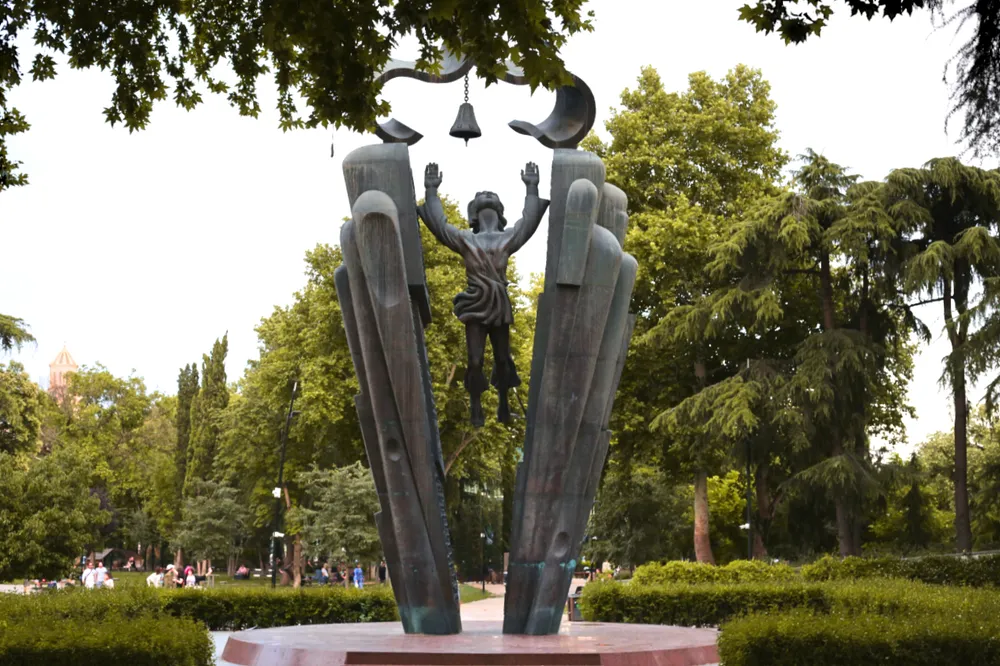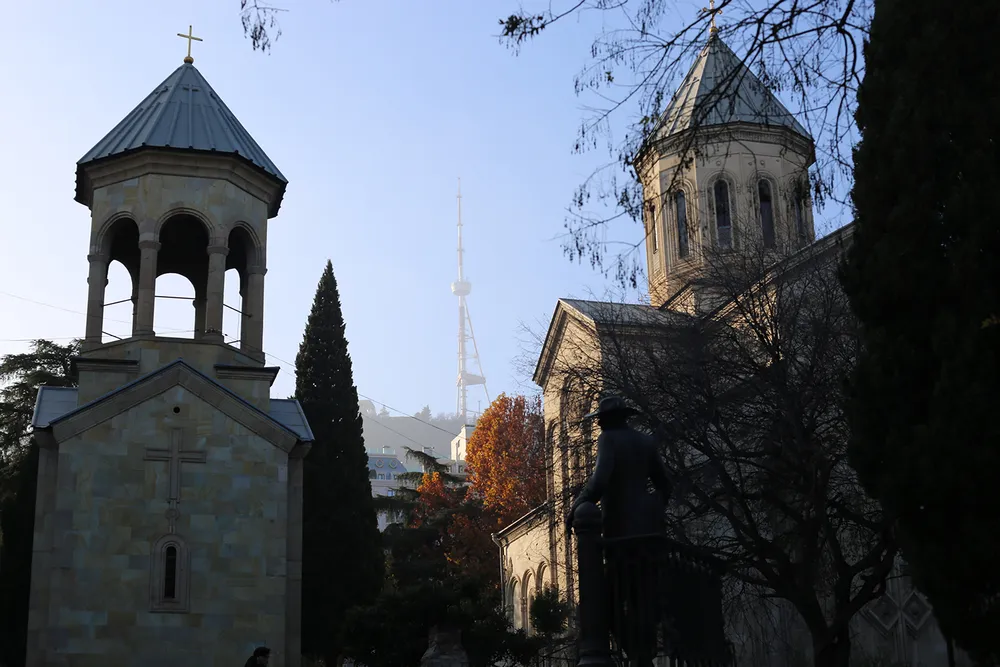Native Language (Deda ena) Monument

Expats Land
In Dadana Park stands the eponymous monument "Deda Ena" (which means "mother tongue" in Georgian).
Dadana is also the name of the very first book for learning the Georgian language, written in 1865 by Yakov Gogebashvili. In part, the monument was erected for this book. Between the open pages of the book, a boy reaches for the bell attached to the arch, symbolizing his desire for knowledge and understanding of his language and culture.
History
In 1977, the Supreme Council of the Georgian Soviet Socialist Republic decided to amend the constitution regarding the state language, specifically to revoke Georgian as an official language and replace it with Russian. By the time this was being discussed, protests were held in Tbilisi against this initiative. On April 14, the majority of people gathered in the area that is now Deda Ena Park.

The people stood up for their native language's status. No further attempts were made in the USSR to change the official language, and Russian became recognized as a language of interethnic communication.
The park, where people fought for their language, was named Deda Ena. Later, a monument to the native language was erected there. April 14 is celebrated as the Day of the Mother Tongue.
Contents
Tbilisi
The capital and largest city of Georgia. The population of Tbilisi in 2022 is about 1.2 million people. It is the cultural center of the country, where an active life takes place.
Read more

Destinations on the map
Our services
Guide
All the necessary information for moving to Georgia and living in it